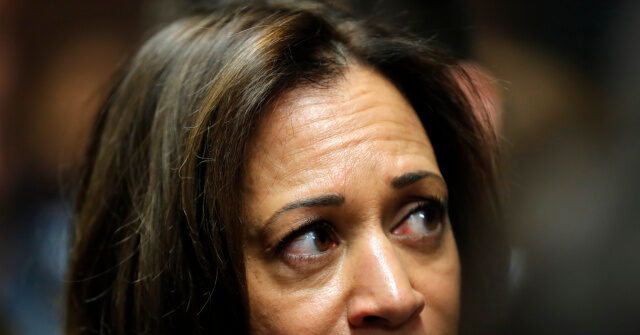In a recent appearance on “Breitbart News Saturday,” Senator Marsha Blackburn (R-TN) asserted that voters are increasingly gravitating towards Donald Trump as they seek to escape the unfavorable economic conditions under the Biden-Harris administration. Blackburn, who is campaigning for re-election in Tennessee, emphasized that her final message to voters closely aligns with Trump’s—focusing on economic recovery. She provided stark statistics showing inflation rates skyrocketing from 1.4% when Trump took office to a cumulative 20.5%, urging voters to consider the economic implications of their choices in the upcoming elections.
Blackburn’s remarks also touched on Vice President Kamala Harris’s recent efforts to rally support against Trump. Her appeal was somewhat overshadowed by President Biden’s comments during a Zoom call, where he derided Trump supporters. Blackburn characterized Biden’s remarks as revealing of the Democrats’ underlying frustration and contempt for many Americans, drawing parallels to Hillary Clinton’s infamous “deplorables” comment from 2016. She argued that such name-calling reflects a broader desperation within the party, showcasing a disconnect between the Democrats and the electorate.
The senator identified three pivotal issues contributing to the Democrats’ challenges: their stances on critical issues, a lack of voter confidence in Harris, and dissatisfaction regarding her candidacy, which many view as an elite-driven decision. Blackburn believes these factors have led to a significant drop in public enthusiasm for the Harris campaign, particularly in light of ongoing economic difficulties. She asserted that the administration’s messaging about economic recovery has been ineffective, leaving them resorting to negative campaigning based on fear rather than hope.
Blackburn highlighted the dire economic circumstances many Americans currently face, with stagnant job creation and declining wages driving voters away from Harris and her party. Many individuals are postponing retirement plans due to inflation concerns and wage stagnation, illustrating the economic strain inflicted by current policies. She criticized the administration’s approach to economic challenges, suggesting that Democrats are attempting to “tax and spend” their way to prosperity without an understanding of foundational economic principles.
Expanding on her economic philosophy, Blackburn proclaimed a straightforward economic strategy: less litigation, less regulation, and lower taxation would stimulate job creation and innovation—principles that she claimed the Democrats stubbornly resist. She argued that voters are eager for different leadership, signaling that Harris, who has been part of the administration for four years, cannot offer the change they seek. Blackburn articulated comprehensive plans promoted by Trump, asserting they promise rejuvenation for economically distressed areas and resonate with voters, especially in swing states.
Furthermore, Blackburn expressed optimism about Republican prospects in key states such as Pennsylvania, Michigan, Wisconsin, Nevada, and New Mexico, citing economic frustrations driving citizens toward Trump and GOP candidates. She predicted significant gains as the electorate rallies around Republican candidates who prioritize economic issues, particularly in regions where local economies are heavily reliant on industries threatened by Democratic policies. As the political landscape evolves, Blackburn emphasized that economic concerns will play a pivotal role in shaping voter decisions, ultimately positioning Trump and Republicans as more viable options moving forward.

